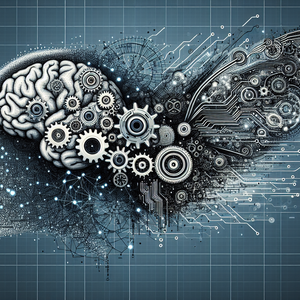The Future of Banking Tech: Innovations by Bank of America Software Engineers

Software engineers are the backbone of modern banking technology, tasked with designing and implementing solutions that address complex challenges. At Bank of America, these dedicated professionals work in collaborative environments, fostering creativity and driving the development of innovative applications. Their role is crucial in ensuring that the bank meets the evolving needs of its customers while maintaining operational efficiency. The diversity of skills within the software engineering teams allows for a comprehensive approach to problem-solving, paving the way for robust banking solutions that enhance user experiences. As they continue to innovate, software engineers at Bank of America are setting new standards for what banking technology can achieve.
Artificial Intelligence: Revolutionizing Customer Interactions
Among the most impactful innovations in banking is the integration of artificial intelligence. Bank of America has embraced AI to enhance customer interactions and improve operational efficiency significantly. A prime example is Erica, the bank's virtual financial assistant powered by AI. Erica assists customers in navigating their banking needs by offering personalized advice, helping with transactions, and providing insights into spending habits. The effectiveness of AI in enhancing customer service is evident in a report by Bank of America, which indicates a 20% increase in customer satisfaction since Erica's implementation. This improvement demonstrates how technology can transform banking into a more accessible and user-friendly experience. The continuous refinement of Erica’s capabilities by software engineers ensures that the virtual assistant adapts to user feedback and evolves with emerging technologies, further solidifying its role as an indispensable tool for customers.
Blockchain: A New Era of Security and Transparency
Blockchain technology is another significant area of innovation that Bank of America is exploring. This technology offers a secure and transparent method for recording transactions, making it a game-changer for the banking industry. The bank is investigating blockchain’s potential to streamline processes such as cross-border payments and trade finance, with the objective of reducing transaction times and enhancing security. For instance, Bank of America is actively involved in various blockchain initiatives aimed at improving the efficiency of international transactions. By utilizing blockchain, the bank can create a more transparent and secure network that mitigates the risks of fraud and errors, setting a new standard for financial transactions. This commitment to leveraging blockchain technology not only enhances operational efficiency but also reinforces customer trust in the bank's services.
Cybersecurity: Protecting Customer Data
As banking increasingly shifts to digital platforms, cybersecurity has become a paramount concern for financial institutions. Bank of America recognizes the importance of safeguarding customer data and has invested heavily in advanced cybersecurity measures. Software engineers play a crucial role in developing and implementing robust security protocols that protect against data breaches and cyber threats. The bank employs machine learning algorithms that can detect and respond to potential threats in real-time. By analyzing patterns and identifying anomalies in data, these systems quickly recognize suspicious activities, allowing for immediate intervention. This proactive approach to cybersecurity not only protects customers but also reinforces Bank of America's reputation as a secure financial institution.
The Future is Bright
As technology continues to advance, the role of software engineers at Bank of America is poised to become even more critical. The bank's unwavering commitment to innovation ensures that it remains a leader in the financial sector, continuously enhancing its services and customer experiences. With ongoing projects in AI, blockchain, and cybersecurity, the future of banking looks promising.
The innovations spearheaded by software engineers at Bank of America are transforming the banking landscape in profound ways. By embracing cutting-edge technologies, the bank not only improves operational efficiency but also significantly enhances customer satisfaction and security. As these technologies evolve, Bank of America is well-positioned to lead the charge in shaping the future of banking. The ongoing developments promise an exciting era for both the financial industry and its customers, as the bank continues to push the boundaries of what is possible in banking technology.
AI Software Engineer
Bank of America, JPMorgan Chase, Capital One
Core Responsibilities
Develop and enhance AI-driven applications like virtual assistants (e.g., Erica) to improve customer interactions.
Collaborate with data scientists to implement machine learning algorithms that analyze user behavior and feedback.
Conduct performance testing and optimization of AI models to ensure robust customer service solutions.
Required Skills
Proficiency in programming languages such as Python or Java, with experience in AI frameworks (e.g., TensorFlow, Keras).
Familiarity with natural language processing (NLP) techniques and chatbot development.
Strong analytical skills and experience with data visualization tools.
Blockchain Developer
Bank of America, Goldman Sachs, IBM
Core Responsibilities
Design and develop blockchain-based solutions for secure and transparent financial transactions.
Collaborate with cross-functional teams to implement smart contracts and improve transaction efficiency.
Stay updated on blockchain trends and evaluate new technologies for potential integration into banking operations.
Required Skills
Strong understanding of blockchain protocols (e.g., Ethereum, Hyperledger).
Proficiency in programming languages such as Solidity, Go, or C++.
Experience with cryptography and secure coding practices.
Cybersecurity Engineer
Bank of America, Wells Fargo, Citibank
Core Responsibilities
Develop and implement security protocols to protect customer data from cyber threats and breaches.
Monitor network traffic for suspicious activities and respond to security incidents in real-time.
Conduct vulnerability assessments and penetration testing to identify potential security weaknesses.
Required Skills
Expertise in cybersecurity frameworks and tools (e.g., SIEM, IDS/IPS).
Strong knowledge of network security, encryption, and secure software development practices.
Relevant certifications such as CISSP, CEH, or CISM.
DevOps Engineer
Bank of America, PayPal, Square
Core Responsibilities
Streamline software development processes by automating deployment and integration pipelines.
Collaborate with software engineers and IT operations to enhance the scalability and reliability of banking applications.
Monitor application performance and implement best practices for continuous improvement.
Required Skills
Proficiency in CI/CD tools (e.g., Jenkins, GitLab) and container orchestration (e.g., Docker, Kubernetes).
Strong scripting skills in languages like Bash or Python.
Experience with cloud platforms (e.g., AWS, Azure) and infrastructure as code (e.g., Terraform).
Data Scientist in Finance
Bank of America, Morgan Stanley, Fidelity Investments
Core Responsibilities
Analyze large datasets to derive insights that guide strategic decision-making and enhance customer experience.
Develop predictive models to forecast trends in customer behavior and financial markets.
Collaborate with engineering teams to integrate data solutions into banking applications.
Required Skills
Strong statistical analysis skills and experience with data manipulation tools (e.g., SQL, R, Python).
Familiarity with machine learning techniques and data visualization software (e.g., Tableau, Power BI).
Excellent communication skills to convey complex data insights to non-technical stakeholders.


